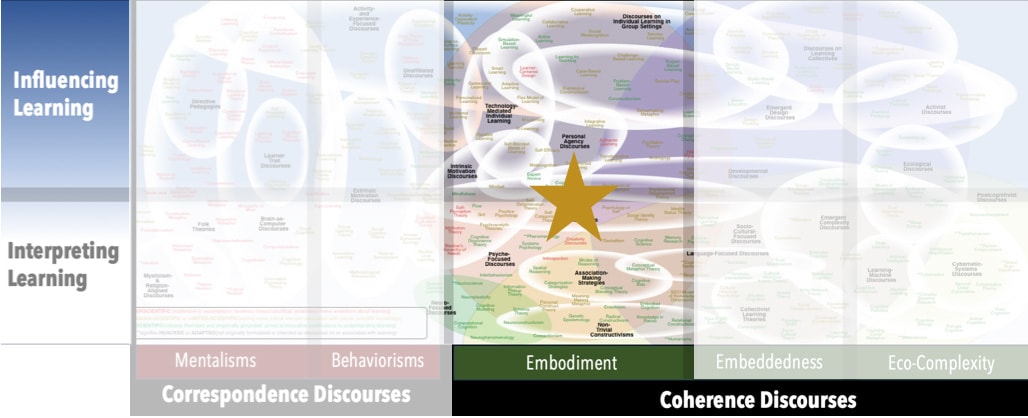Focus
Explaining why learners do what they do in terms of the action rather than a rewardPrincipal Metaphors
- Knowledge is … range of possible activity
- Knowing is … engaged action
- Learner is … a doer
- Learning is … increasing competence
- Teaching is … stage-setting
Originated
1970sSynopsis
Intrinsic Motivation Discourses focus on events and activities that are driven by interest or pleasure in engaging, rather than by external pressures or rewards. Some consensus has arisen around the assertion that there are at least two common elements to intrinsically motivating tasks, namely self-determination (i.e., the actor chooses to engage) and improvement (i.e., the actor must perceive increased competence through engaging). Associated discourses include:- Internalisms – discourses in which it is assumed or asserted that one's justifications and motivations are principally matters of beliefs, desires, and other internal predilections
Commentary
Ironically, early Intrinsic Motivation Discourses were based on studies of animals that engaged in activities for no obvious reward (i.e., observers could see no external incentives). Those observation punctured the prevailing belief that all activity was externally motivated. The fact that this realization was not apparent within formal education speaks to the directive character of the enterprise at the time. It is now recognized that intrinsically motivating activities tend to be longer lasting and more self-sustaining – and, hence, a fitting emphasis in institutions devoted to learning.Subdiscourses:
- Internalisms
Map Location

Please cite this article as:
Davis, B., & Francis, K. (2024). “Intrinsic Motivation Discourses” in Discourses on Learning in Education. https://learningdiscourses.com.
⇦ Back to Map
⇦ Back to List
